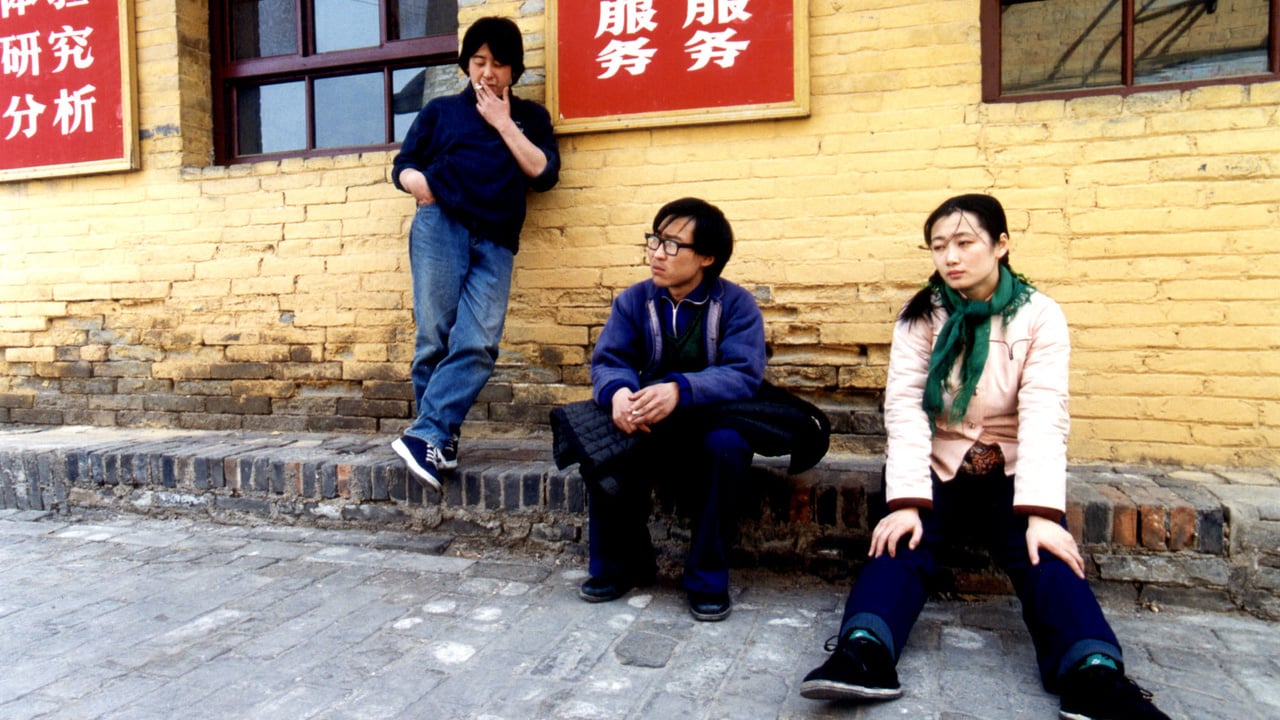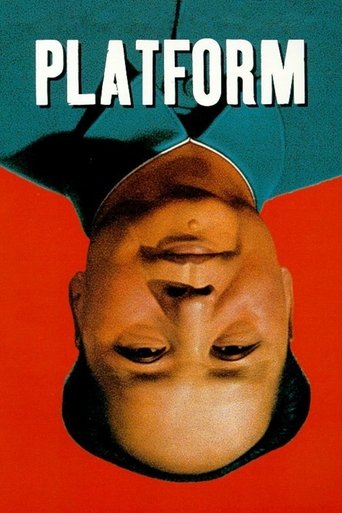MamaGravity
good back-story, and good acting
BroadcastChic
Excellent, a Must See
Arianna Moses
Let me be very fair here, this is not the best movie in my opinion. But, this movie is fun, it has purpose and is very enjoyable to watch.
Leoni Haney
Yes, absolutely, there is fun to be had, as well as many, many things to go boom, all amid an atmospheric urban jungle.
museumofdave
Positives: A detailed look at what much of small town life in China looked and sounded like in the 1980's: government speakers constantly bombarding the citizens with announcements, party propaganda and tinny music, buildings made of grey mud-like brick--miles and miles of them, old bridges, and because of the season, few trees. It's grim, and so are the lives of the young people who want to do something with their lives other than wait for something to happen.Negatives: Shots of landscapes and a few people who barely communicate go on for what seem like forever, and to someone used to the MTV school of constant image manipulation, these often gloomy meditations may make you wish to run screaming from the room; character relationships are poorly delineated (and that may be the filmmaker's point--in that atmosphere, they can't be!), and for my taste, there are not enough close-ups to bring the story home.Platform is an honest, personal film about a time and place in China, and for many folks, that will make it worth watching. It would be a fascinating project if other talented film makers all over the world could spend some time in their own little favorite towns and come up with similar documents: Moabi, Gabon, for instance, or Amarante, Portugal, or La Mesa, California.
anonyimdb1
The essence of the story is simple, though with multi-layered implications.For the essence, the dialogue says it all : "Where is outer-Mongolia (the name used by the Chinese for Mongolia)?" "North of inner-Mongolia (a province of China)." "Which country lies north to the outer-Mongolia?" "Russia." "Still north?" "The ocean." "What is beyond that?" "Fenyang, your home town." . The essence is "nowhereness".The members of the state-owned vaudeville group were supposed to be the cultural elites of the town, with most of the peasants illiterate, intellectually bleak, and with no appreciation for art. They could perform ballet, opera, various instruments, and flamenco. But they were tied to the peasants, for they were the tools for the government to please and entertain the grassroots of its support. They had all the longing for a brave new life that would suit their values, ideologies, and aesthetics, but they did not know how to act. Though they were given the eye for a better life, they were deprived of the chance to live it. They still lived as the peasants, eking out a meager living. Both the inaction on their behalf and the innate determinant posed by the social reality for their inaction constitutes the "nowhereness" for the semi-intellectuals.All they ever had was a moment of pleasure and inspiration by art and an everlasting bitterness and backbreaking excruciation imposed by the actual living that goes nowhere and has no end.The life of the masses is another layer of the "nowhereness". It is no doubt that the change in China during the '80s were profound. The Big Brother abandoned the central planning economy along with the ideology that acted as the appurtenance. A new kind of exploitation took the place of the old one, and the peasants (the masses) were still nowhere to be the beneficiaries. The illusory glory of contributing to the nation in the totalitarian state made way for the cheap and coarse consumer products in the national capitalism. The difference between the masses and the elite is that the masses never knows and never has the urge to know the truth. They were already consumed and wasted by the effort to sustain their mere existence. Leisure and education are never on their side. In the new world, they gained the return of a minute scrap from the spoils of the exploitation of their own sweat and blood, and lost the meaning of life with the peace of mind. They no longer has a direction or a cause. It is an every-man-for-himself scenario let loose in a country with 1.3 billion people. "Nowhereness" seems to be a result very much acceptable.The last layer of the "nowhereness" is the nowhereness of the nation as a whole. The story of the Fenyang Town goes the same for the Chinese nation. The Jeffersonian-like ideal of the ancient empire was but yesterday's dream. The current China, dated back to mid-19th century, through its search for power, independence, and its own identity, has got used to the nation-wide mobilization, and consequently, with a constant change of plan, accidentally and successfully obliterated its own culture and identity. What is left is but the dregs of old memory and folklore. The nation's elite today could only satiate their quest for meaning with the ideas of the Western world that their forefathers labelled as barbarism one century and a half ago. As a culture entity, China is already lost.A nation has thus lost itself.
jandesimpson
"Zhantai" has so many of the features I have admired from recent Oriental masterworks such as " A Brighter Summer Day", "Eureka" and "City of Sadness" that I will have to find some justification for considering it ultimately so much less satisfying. Like these others it succeeds in creating a complete world of its own that, because it is so remote from Western experience, exerts a fascination that is hard to forget. We are in Fenyang a small town somewhere West of Beijing, where flat plains give way to craggy, uninviting mountains. The time is the early 1980s when strict Maoist ideology was about to give way to a period of consumer liberalisation. A group of young actor-singer- dancers employed by the state to remind provincial audiences of the principles of Mao through the medium of stage entertainment are about to see their world fall victim to the progress of private enterprise, when no longer needed for government propaganda. What was once a captive audience turns fickle, often rejecting outright the new form of pop culture they are offered. The irony is that progress in this context brings disillusionment resulting in a group of friends drifting away from their close initial camaraderie. By the time the film ends their future looks far from confident. Both thematically and atmospherically "Zhantai" has the potential for great cinema. Why then after two viewings in quick succession do I find its sense of communication so elusive and uninvolving? The answer must lie in the way the director seems to distant his characters from their audience. We never get closer to them than a middle shot. In a film where the close-up is as rigorously excluded from cinematic grammar as camera movement from the later work of Ozu, the characters' everyday lives seem to be presentad as an extension of their existance on stage to the extent that we are often left to guess at their feelings and emotions. I have written before of how fascinated I am to respond to the demands of directors such as Edward Yang and Hou Xiaoxian to connect with characters and situations when given the barest information. Director Jia Zhangke is obviously aiming at their oblique narrative style but somehow gives so little that by the end I felt I knew much more about the topography of Fenyang than of the characters that live there. For a film about the effect of historical change on individuals to be completely successful it needs to be the other way round.
German Kijel
I am from Argentina, so is difficult to me to express, but the film is a beautiful master piece about the history of China. The view of a group of a cultural actors is perfect, because they first work as actors that like Mao, but then they make breakdance...

